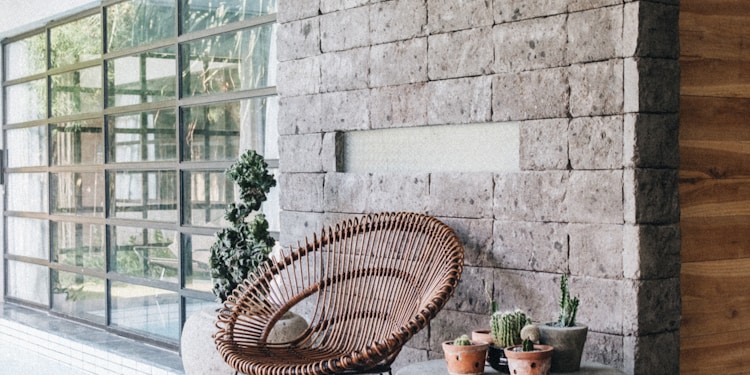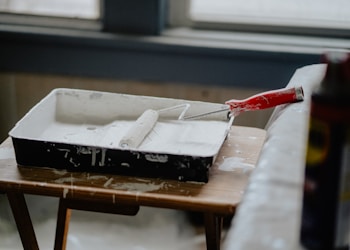Water damage remains one of the biggest concerns homeowners face. Why must you protect your dwelling from any damages caused by leaks, rainwater, or flooding? Simple- water damage costs a fortune to repair while being quite a nuisance for your whole family. Among resident insurance claims, water damage holds the position of being the second-most-frequently-filed problem. Therefore, it’s sometimes annoying to hear people claiming, “Water damage’s not a big deal at all.” Surveys have shown that homeowners are more likely to face water damage than encounter burglars or suffer from fire damage. For this reason, protecting a home from water damage should become a resident’s priority. So, are you taking proper measures?
Water damage doesn’t just cost you more in repairs. Even minor leaks in the faucets amplify an average resident’s water bills by 10%, and interestingly, 10% of homes have undetected leakages everywhere. Floods
Clean the sewer
Clean domestic sewers since blocked gutters may cause water damage. So, remove sewer debris and contact professionals to properly clean these gutters. You can use a hydro jetting machine as many experts use this device to clean slow-moving sewage lines. This technique can effectively make gutters get unclogged and moving again. Don’t let blocked gutters make your residence more vulnerable to backflow, leaks, and water damage.
Check faucets regularly
How many times do you check the faucets in your house? Regularly checking these faucets can allow homeowners to discover leakages as soon as possible and make timely repairs. Moreover, monitor the hoses connected to your fridge, dishwasher, and washing machine. Don’t forget to replace faucets in your house after 5-7 years. Not just faucets but even showers require constant checks. The caulk around faucets should be well-maintained (and replaced often since it’s inexpensive) to avoid leaks.
Inspect for mold
Is there mold growing in your house? Look for signs of mold growing under the sink or inside your cabinets. The existence of these growths indicates there’s a leakage somewhere. These things start sprouting when there’s an abundance of moisture inside the walls. Contact some well-experienced cleaners to handle this problem and make your house appear mold-free again.
Know where the main valve is
Do you know where the shut-off valve is located? Knowing the position of the main allows you to shut down the water supply and avoid wasting too much water in case there’s a major leak or breakage. In the case of pipe bursts, you can easily lessen the damage by shutting off the main valve. That’s why apartment-renters should realize the location of the mains supply after moving into another residence. Moreover, keep the valve turned off when you are away from home for a long period.
Monitor the flow
Homeowners can now purchase and install automated water-flow monitoring systems to protect the dwelling easily against water damage. This system will measure the water flow in your house and look for any signs of a would-be deluge. When the system detects an extremely abnormal flow of water, it shuts down the connection automatically. Hence you can save significant water loss and prevent damage on time.
Maintain your appliances
Unchecked appliances may also lead to water damage in people’s dwellings. For this reason, people should maintain these appliances regularly and replace them when they become too faulty. For instance, the hoses on your fridge must be replaced after five years since they may cause problems when overused. So, maintain your appliances properly to avoid damage.
Find leaks immediately
Do you know which part of your house is more vulnerable to leaks? Studies confirm that about 98% of basements sustain water damage. So, investigate these leaks, after which you can fix the causes immediately. Don’t ignore moisture damage because postponing these issues will expand to even cause structural problems for the building. Fix these issues immediately.
Check sump pumps
Continuing from the problem with average basements, homeowners install sump pumps to prevent their basements from flooding. However, having sump pumps isn’t enough; residents should ensure these pumps are well-maintained and function properly in rainy seasons. These sump pumps should be serviced at least annually to function effectively. That’s how you can prevent your basement from flooding.
Prevent freezing pipes
Don’t let pipelines freeze since these can burst during winters and wreak havoc on your property. Most importantly, abandoning the property for lengthy periods often leads to freezing pipes. So shut down the water supply when you’re going away on vacation with the family. You can also use a thermostat to maintain a steady temperature or insulation if you live in extremely cold areas. Keeping s small amount of water flowing through the taps during winter prevents water from freezing inside them.
Inspect your bill
Your bill can indicate if there’s water damage somewhere. You must act quickly if the amount jumps suddenly compared to the previous month. This bill may be a godsend for residents oblivious of water leakages happening beneath their noses. Look for hidden leaks after you’ve received an impossible water bill and try to minimize the damage quickly.
Check the roof
Another reason why residents face water damage involves leaky roofs. These leakages can start little but eventually become a headache for property owners. So homeowners should consider having the roof inspected, repairing its damages, replacing missing shingles, and installing another after the roof’s lifespan expires. So, don’t neglect to check the roof for leakages and do timely repairs
Check water pressure
Regularly monitor the water pressure in your home since high-pressure water flow may damage the pipelines. Get a water pressure gauge to monitor current water pressure readings. An average home has water pressure readings ranging from 40 psi to 70 psi. If you read 100 psi, buy a pressure regular quickly. Thus, you can avoid making domestic pipelines burst from the pressure.
Reduce landscaping properly
Everybody loves greenery around the house, but sometimes the roots can cover the pipes and break them. So, maintain the landscaping inside the premises and eliminate anything threatening the pipelines. Remove trees/shrubs after they grow large enough to cause problems for the pipelines. Ask professionals to deal with this problem in an eco-friendly manner.
Conclusion
Statistics suggest that 14,000 people experience problems related to water damage daily. We’ve established that people shouldn’t take urban flooding lightly and protect their abodes against water damage. So, check for leaks in the faucets regularly and know where the main’s located. Clean all sewers by calling professional hydro-jetting machine operators. Ensure you have prevented freezing pipes, inspected all appliances carefully, and reduced landscaping around the house. Look for mold, mildew, and leakages in the ceiling. Monitor the water flow in your house and track the bill to identify anomalies. Don’t forget to check the water pressure in the house. That’s how you can protect your home from water damage.
















